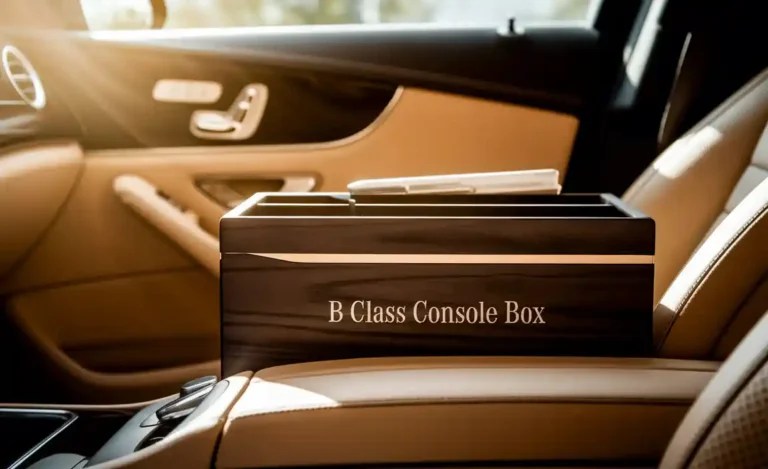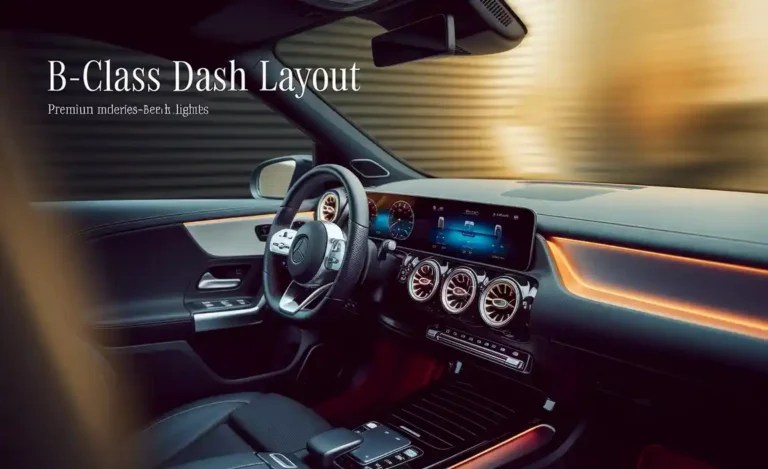B Class Diesel Variant: Exclusive & Powerful Performance
The B Class diesel variant offers a compelling blend of exclusive luxury and powerful, efficient performance, making it a standout choice for discerning drivers seeking a sophisticated yet dynamic compact car experience.
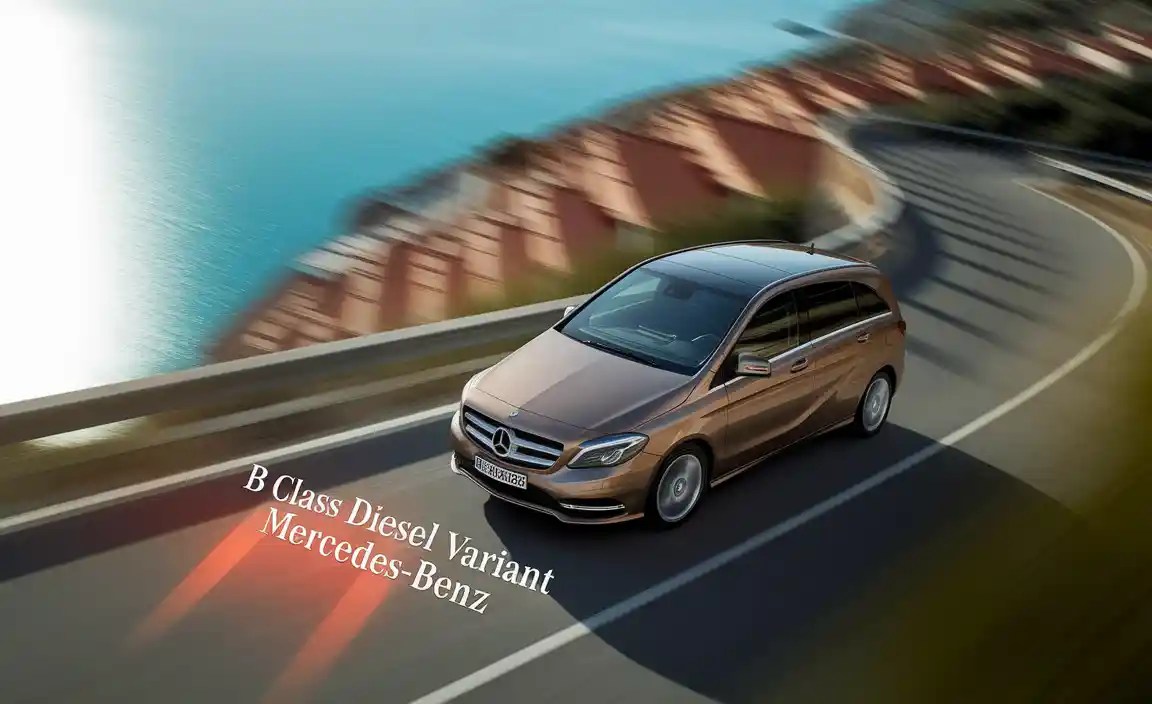
The Mercedes-Benz B-Class has always held a unique position, offering the prestige of the three-pointed star in a practical, compact package. For those who appreciate the torque and efficiency of diesel power, the B Class diesel variant presents an exclusive proposition. Often associated with impressive fuel economy and a robust driving experience, this model might seem straightforward, but understanding its nuances can unlock its full potential. If you’re curious about what makes the B Class diesel special, or if you’re considering one, you’ve come to the right place. We’ll demystify its performance, showcase its exclusive features, and help you appreciate why this variant is a smart choice for luxury and efficiency.
What makes the B Class diesel variant “exclusive”?
The exclusivity of the B Class diesel variant often stems from its specific market availability, sometimes being a niche offering compared to gasoline counterparts in certain regions. It also represents a particular engineering philosophy: combining Mercedes-Benz luxury and refinement with the inherent benefits of diesel power, such as long-distance cruising comfort and significant torque, not always associated with smaller luxury vehicles.
How does the diesel engine perform compared to gasoline engines in the B-Class?
Diesel engines typically offer higher torque at lower RPMs, providing a strong and responsive feel, especially for initial acceleration and overtaking. This translates to a feeling of effortless power. While gasoline engines might offer higher peak horsepower and a more immediate revving nature, the diesel excels in pulling power and efficiency, particularly on highways. For everyday driving and fuel economy, the diesel variant often has an edge.

Is the B Class diesel variant fuel-efficient?
Yes, one of the primary advantages of diesel engines is their superior fuel efficiency. The B Class diesel variant is engineered to achieve excellent miles per gallon, making it a highly economical choice for daily commutes and long journeys. This efficiency is a key part of its appeal, offering substantial savings on fuel costs over its lifetime.
Are there any specific maintenance considerations for the B Class diesel?
Diesel engines have specific maintenance needs. Regular oil changes with appropriate diesel-specific oil are crucial. Fuel filter replacement at recommended intervals is vital to prevent injector issues. Additionally, modern diesels employ exhaust after-treatment systems (like AdBlue or DEF fluid in some models) that require attention and refilling as indicated by the car’s systems. Following the manufacturer’s service schedule is paramount.
What kind of driving experience can I expect from a B Class diesel?
You can expect a refined and comfortable driving experience, characteristic of Mercedes-Benz. The diesel variant typically provides strong, consistent acceleration, a smooth ride, and excellent stability, particularly for highway cruising. The torque from the diesel engine makes it feel well-suited for dynamic driving, offering a sense of planted control without sacrificing the luxury and quietness expected from a Mercedes.
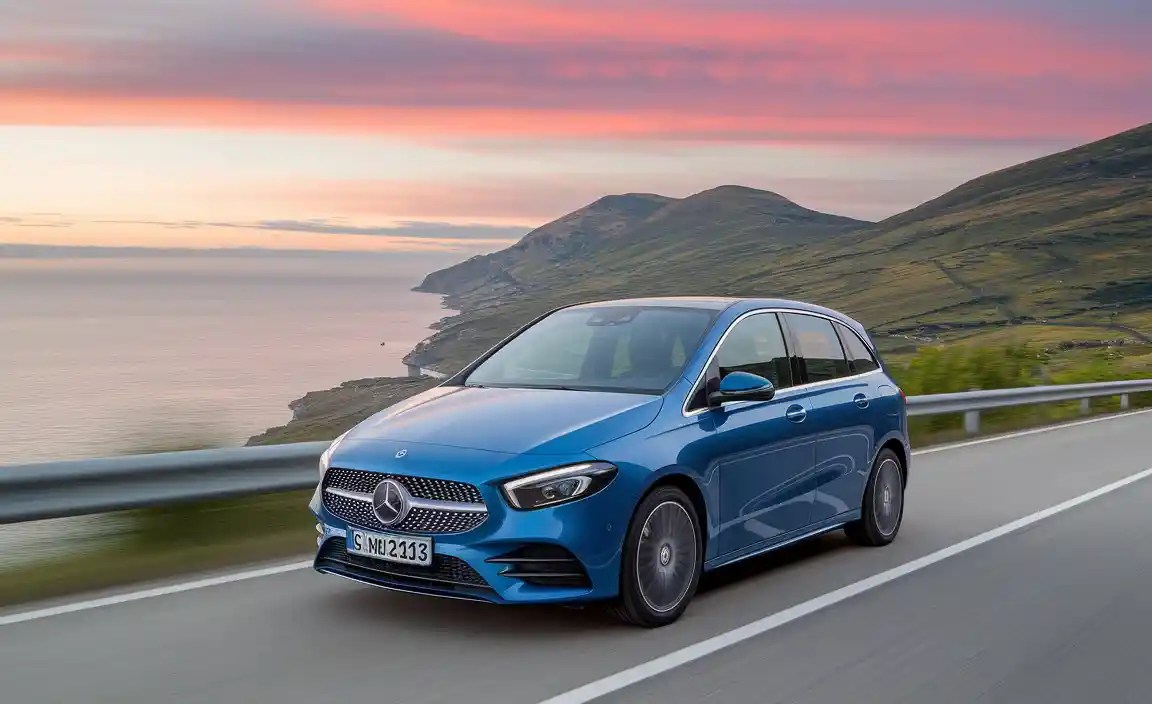
Where can I find more information on specific B Class diesel models and their performance?
For detailed specifications on specific B Class diesel models, the best resources are the official Mercedes-Benz website for your region, reputable automotive review sites, and owner forums dedicated to Mercedes-Benz vehicles. You can often find detailed performance charts and reviews that compare different engine options, including diesel variants.
The Allure of the B Class Diesel: Exclusive & Powerful Performance
The Mercedes-Benz B-Class diesel variant offers a unique proposition within the luxury compact segment. It’s a vehicle that appeals to those who demand efficiency without compromising on the refined driving dynamics and premium feel synonymous with the Mercedes-Benz badge. Often, the diesel option is seen as a more exclusive choice, representing a smart blend of potent torque, impressive fuel economy, and long-distance cruising comfort that gasoline engines can sometimes struggle to match in this class. If you’re looking for a sophisticated compact car that delivers on both performance and practicality, the B Class diesel variant warrants a closer look. Let’s dive into what makes this particular configuration a standout choice.
Understanding the B Class Diesel Variant
The B Class, as a compact multi-purpose vehicle (MPV) or compact car depending on the generation and market, provides an inviting entry into the Mercedes-Benz family. The diesel variants within this lineup are often lauded for their characterful performance and remarkable efficiency. This isn’t just about getting from point A to point B; it’s about experiencing the journey with a sense of controlled power and economic sensibility. The “exclusive” nature often comes from the fact that diesel powertrains, while popular in Europe, may have been less common or unavailable in certain global markets, making them a rarer find and a distinct choice for those who seek their specific benefits.
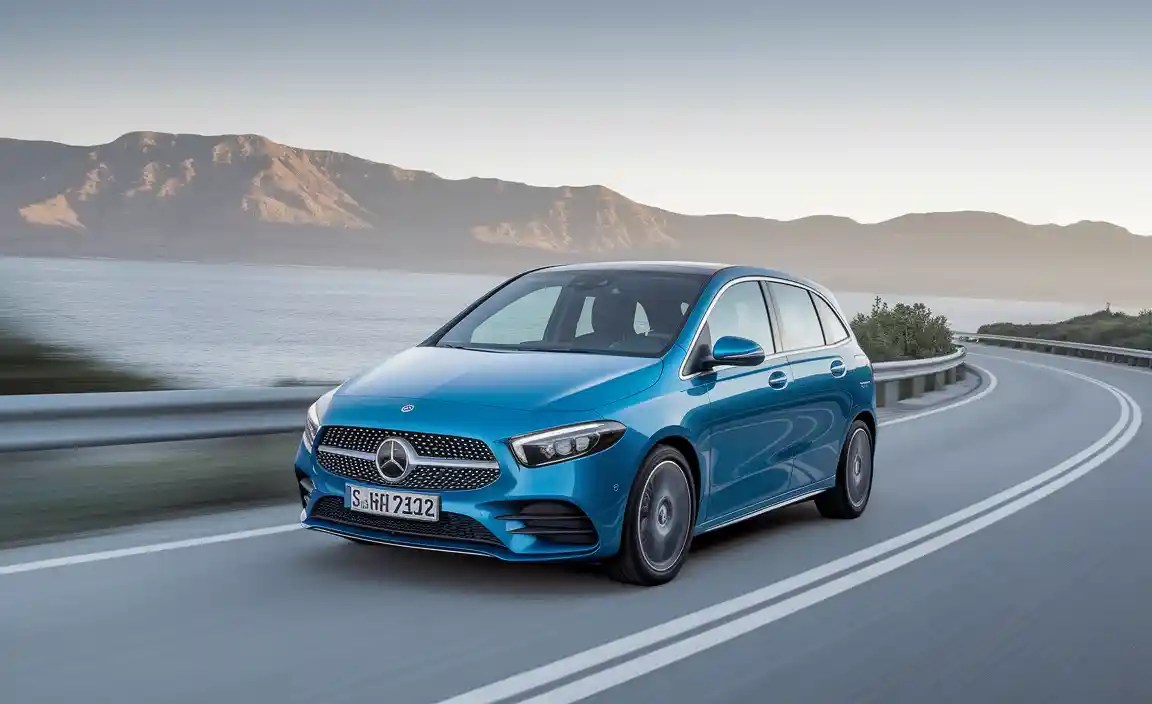
The core appeal lies in the diesel engine’s inherent characteristics. Unlike a gasoline engine, which relies on spark plugs to ignite the fuel-air mixture, a diesel engine uses the heat generated by high compression within the cylinder to ignite the diesel fuel. This process is inherently more efficient, leading to better fuel economy. Moreover, diesel engines produce their maximum torque – the rotational force that makes a car accelerate – at lower revolutions per minute (RPM) than most gasoline engines. This results in a feeling of strong, immediate response when you press the accelerator, particularly noticeable from a standstill or when overtaking.
Engine Technology and Performance Characteristics
Mercedes-Benz has a long-standing reputation for engineering sophisticated and reliable diesel engines. In the B Class, these powerplants are typically turbocharged, further enhancing their performance. Turbocharging forces more air into the combustion chamber, allowing more fuel to be burned, which in turn generates more power and torque. This is a key reason why modern small diesel engines can feel surprisingly potent.
The performance you can expect is often described as ‘effortless torque’. This means that while the engine might not rev as freely or as high as a gasoline equivalent, it pulls strongly from low revs. For everyday driving, this translates to a relaxed experience; you often don’t need to push the engine hard to get moving briskly. On the highway, this strong low-end torque means the engine isn’t strained, contributing to a quieter and more comfortable ride, and a feeling of confident acceleration when needed for overtakes.
Consider a typical diesel engine in a B Class variant, such as a 2.0-liter turbodiesel. This engine would likely produce an impressive amount of torque, perhaps in the region of 300-400 Nm (Newton-meters), which is equivalent to about 220-295 lb-ft. For comparison, a similarly sized gasoline engine might produce closer to 200-250 Nm (147-184 lb-ft). This difference in torque is palpable and contributes significantly to the diesel’s engaging performance feel.
Fuel Efficiency and Eco-Friendliness
The primary driver for many choosing a diesel vehicle is its superior fuel efficiency. Diesel engines are inherently more efficient than their gasoline counterparts due to the higher energy density of diesel fuel and the nature of the compression-ignition process. This means that for every gallon of fuel burned, a diesel engine can extract more energy, translating directly into more miles driven per gallon.
For the B Class diesel, this translates into potentially significant savings on fuel costs, especially for drivers who cover a lot of miles. Long commutes, frequent road trips, and city driving where frequent acceleration can drain a gasoline engine’s efficiency are all areas where the diesel variant shines. In some European markets, for example, a B Class diesel might achieve combined fuel consumption figures that are 20-30% better than an equivalent gasoline model. This is a tangible benefit that can amount to hundreds of dollars saved annually.
Furthermore, modern diesel engines are significantly cleaner than older generations. They are equipped with advanced emissions control systems, such as Diesel Particulate Filters (DPFs) and Selective Catalytic Reduction (SCR) systems that use Diesel Exhaust Fluid (DEF), often referred to as AdBlue. These systems drastically reduce harmful emissions like particulate matter and nitrogen oxides (NOx), helping diesel vehicles meet stringent environmental regulations like Euro 6 standards. For instance, SCR systems inject a urea-based fluid into the exhaust stream, which converts harmful NOx into harmless nitrogen and water vapor. Understanding these advancements is key to appreciating the environmental credentials of contemporary diesel powertrains.
Exclusive Features and Luxury Touches
Beyond the powertrain, the B Class diesel variant carries the hallmarks of Mercedes-Benz craftsmanship and luxury. While the core features are shared across B-Class models, certain distinctions or the enhanced performance character offered by the diesel might amplify the perception of exclusivity.
Expect the interior to be a sanctuary of comfort and quality. High-grade materials, meticulous fit and finish, and ergonomic design are standard. Depending on the trim level and options chosen, you might find features like:
- Premium upholstery, such as Artico man-made leather or genuine leather.
- Advanced MBUX (Mercedes-Benz User Experience) infotainment system with intuitive touch controls and voice activation.
- Heated and electrically adjustable front seats for customized comfort.
- Ambient lighting with multi-color options to set the mood.
- A panoramic sunroof that floods the cabin with natural light.
- Sophisticated driver assistance systems like Active Brake Assist, Blind Spot Assist, and Lane Keeping Assist, offering enhanced safety and peace of mind.
The driving dynamics are tuned for a balance of agility and comfort. The chassis is engineered to provide a stable and composed ride, absorbing road imperfections with ease, while still offering responsive handling for spirited driving. This is particularly important for a compact vehicle designed for versatility, capable of handling city maneuvering as adeptly as it does highway cruising.
Design and Aerodynamics
The exterior design of the B-Class diesel variant typically emphasizes a sleek, modern aesthetic. Mercedes-Benz designers focus on clean lines and aerodynamic efficiency, not just for visual appeal but also to reduce drag and improve fuel economy. Subtle design cues, such as the specific grille patterns, alloy wheel designs, and badging for the diesel models, contribute to its distinctive identity.
Aerodynamics play a crucial role in a vehicle’s overall efficiency. A lower drag coefficient means the engine doesn’t have to work as hard to overcome air resistance, especially at higher speeds. This contributes directly to better fuel economy and a quieter cabin. Mercedes-Benz employs sophisticated computational fluid dynamics (CFD) and wind tunnel testing to optimize the shape of their vehicles, ensuring they are both beautiful and functionally efficient. For example, the underbody of the vehicle is often smoothed and covered to prevent air turbulence, and elements like the grille shutters can actively open and close to manage airflow for cooling or aerodynamic benefits.
The Driving Experience: Torque, Refinement, and Control
Driving a B Class diesel variant is a unique experience. The initial surge of torque from the turbodiesel engine provides an immediate sense of power that can be quite addictive. When you pull away from a set of traffic lights or merge onto a highway, the car feels responsive and eager without being harsh. This readily available low-end grunt means that you can often drive the car with minimal gear changes, contributing to a smooth and relaxed driving style.
The refinement is a hallmark of Mercedes-Benz. Despite being a diesel, the engine noise and vibration are impressively well-suppressed. Thorough sound insulation and advanced engine mounts mean that the cabin remains a quiet and serene environment, even at cruising speeds. This transforms long journeys into more enjoyable experiences, reducing driver fatigue.
Handling and Suspension
The suspension system in the B Class diesel is tuned to provide a comfortable ride without sacrificing the car’s ability to handle corners with confidence. Early B-Class models featured a slightly different suspension setup than other Mercedes-Benz models, often described as having a more “pliant” or “comfortable” feel, which is ideal for its intended purpose as a versatile compact car. Later generations have refined this balance further, offering a sportier feel in optional AMG Line trims while retaining excellent ride quality.
The steering is typically precise and well-weighted, providing good feedback to the driver and making it easy to maneuver in tight spaces. Coupled with the strong torque of the diesel engine, the B Class diesel feels competent and engaging on winding roads. The vehicle’s relatively compact dimensions and well-balanced chassis contribute to its agility, making it a joy to drive in various conditions.
Transmission and Drivetrain
The B Class diesel variant is often paired with Mercedes-Benz’s advanced automatic transmissions. The 7G-DCT (7-speed Direct Shift Transmission) or the 8G-DCT (8-speed Dual Clutch Transmission) are common choices. These transmissions are designed to work seamlessly with the diesel engine’s torque characteristics. They offer quick, smooth gear changes, optimizing both performance and fuel efficiency. In manual mode, via paddle shifters on the steering wheel, drivers can also take more control, selecting gears themselves for more spirited driving.
Some models may also be available with optional 4MATIC all-wheel drive, which further enhances traction and stability, particularly in adverse weather conditions. This system intelligently distributes power to the wheels that have the most grip, providing an extra layer of confidence and performance, especially on slippery surfaces.
Maintenance and Ownership Considerations
Owning a Mercedes-Benz B Class diesel variant means embracing a level of maintenance that ensures its longevity and optimal performance. While diesel engines are often known for their durability, adhering to a strict maintenance schedule is key.
Routine Servicing
Regular oil changes are non-negotiable. It is crucial to use a high-quality diesel-specific engine oil that meets Mercedes-Benz’s specifications. These oils have additives designed to cope with the higher operating temperatures and pressures of diesel combustion and the requirements of emissions control systems. The oil change interval will be specified in your owner’s manual, but adherence to it is essential. For example, adhering to API engine oil service categories appropriate for diesel engines indicates good practice.
Fuel filters are another critical component for diesel engines. Diesel fuel can contain impurities, and the fuel filter’s job is to trap these before they reach the sensitive fuel injection system. Replacing the fuel filter at the intervals recommended by Mercedes-Benz (often every 30,000 to 50,000 miles) is vital to prevent injector damage and maintain optimal fuel delivery. Clogged fuel filters can lead to hard starting, reduced power, and even engine stalling.
Emissions Systems Maintenance
As mentioned earlier, modern diesel engines are equipped with sophisticated emissions control systems. The Diesel Particulate Filter (DPF) traps soot from the exhaust gases. It is designed to self-clean through a process called “regeneration,” where the trapped soot is burned off at high temperatures. However, if the vehicle is predominantly used for short city journeys, this regeneration cycle may not complete effectively, leading to a clogged DPF. This can result in warning lights, reduced engine performance, and potentially expensive repairs. For owners who primarily drive short distances, occasional longer highway drives are recommended to allow the DPF to regenerate properly.
Vehicles equipped with SCR systems will require periodic refilling of Diesel Exhaust Fluid (DEF) or AdBlue. The vehicle’s onboard computer will typically provide ample warning when the DEF level is low. Running out of DEF will prevent the engine from starting in most modern vehicles, as it’s a mandatory component for emissions compliance. Ensure you use a high-quality DEF fluid from reputable sources. You can learn more about emissions standards for vehicles from the U.S. Environmental Protection Agency (EPA).
Specialized Tools and Expertise
While basic maintenance can be performed by DIY enthusiasts, certain aspects of diesel engine maintenance, particularly those related to the fuel injection system and emissions controls, may require specialized diagnostic tools and knowledge. If you’re not experienced with diesel powertrains, it’s wise to trust these jobs to a qualified Mercedes-Benz technician. They have access to the correct diagnostic equipment and understand the intricacies of the B Class diesel’s systems. For reference on engine types and their characteristics, resources from automotive engineering societies like the SAE International offer deep technical insights.
Choosing the Right Trim and Options
When looking at a B Class diesel variant, the specific trim level and optional packages will significantly influence the final price and feature set. Mercedes-Benz typically offers distinct lines – for example, the standard model, AMG Line, or Executive trims – each with its own focus on styling, comfort, and technology.
Here’s a breakdown of what to consider:
| Area of Consideration | What to Look For | Impact on Experience |
|---|---|---|
| Engine Specifics |

